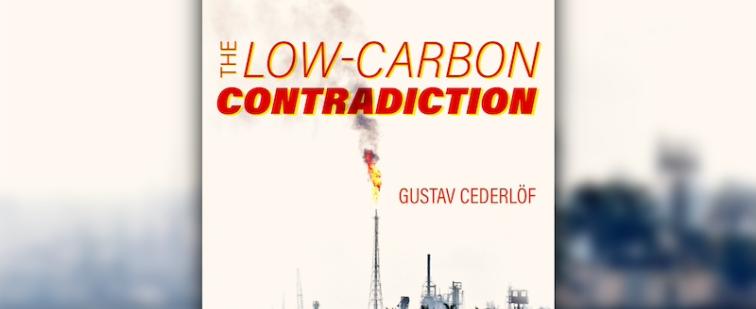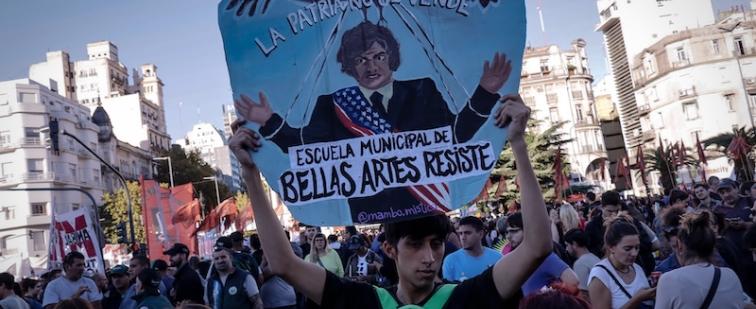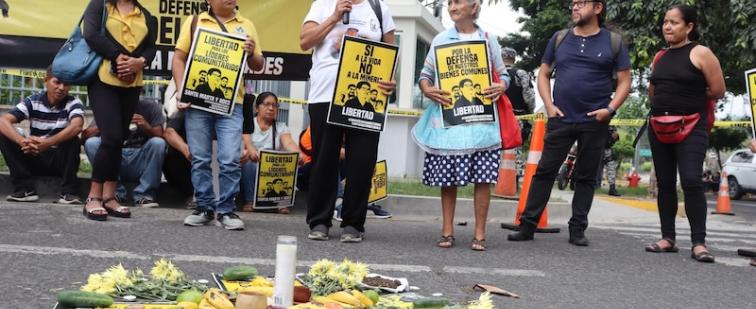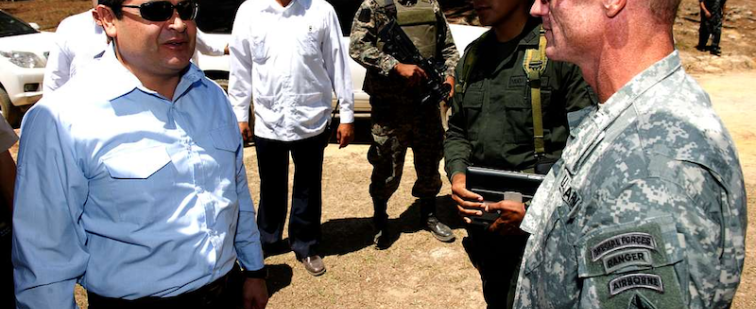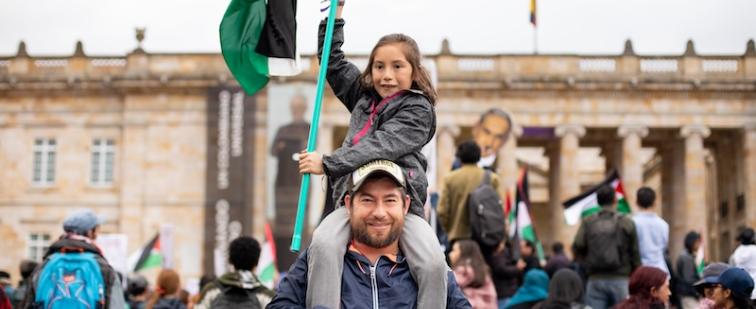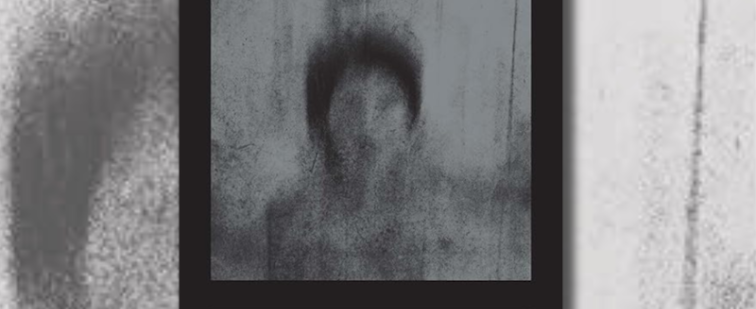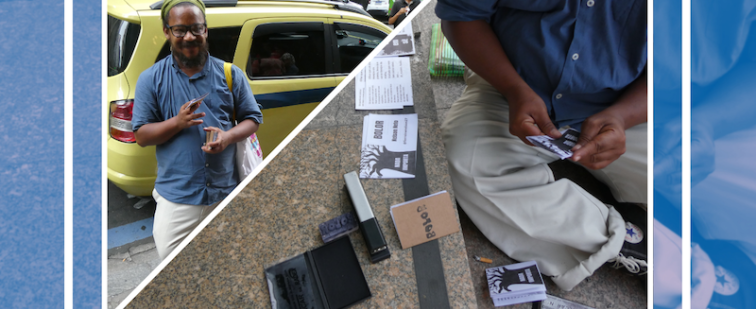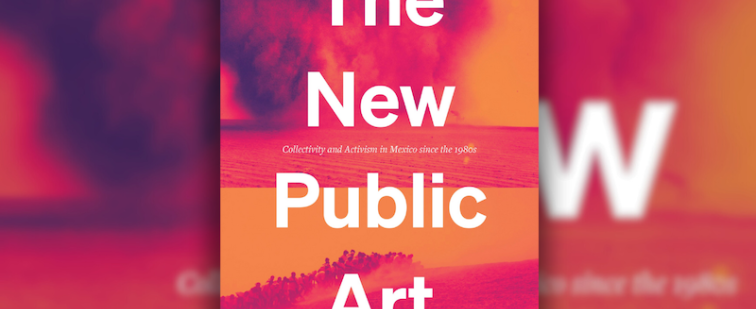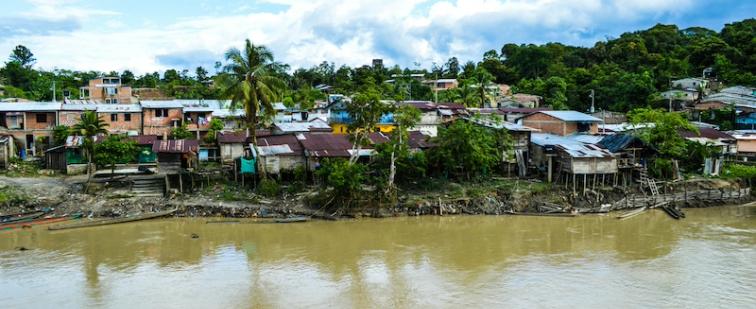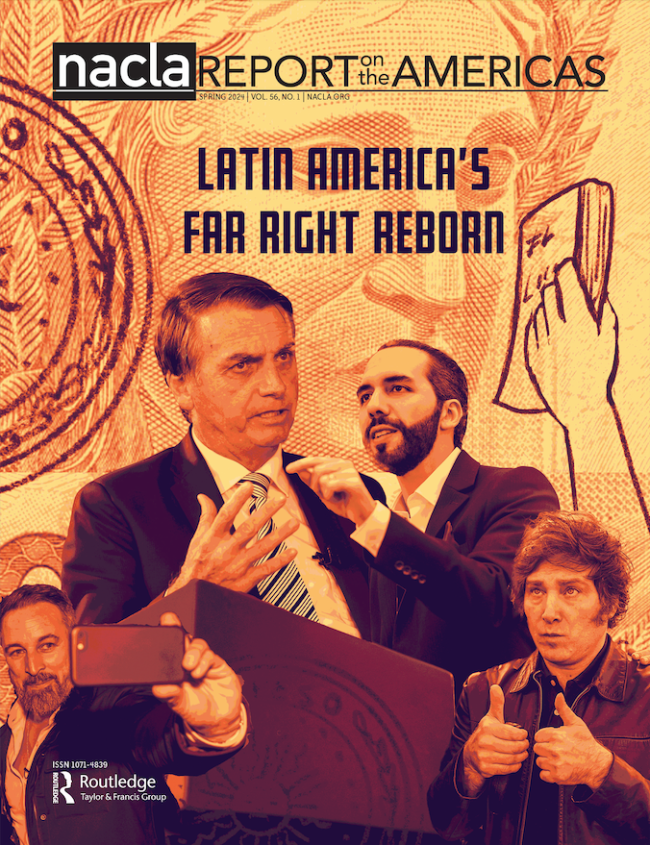Home
On January 25, Bolivians will vote on whether to approve a new constitution, which polls indicate will be easily passed. The new constitution will introduce sweeping changes, particularly on indigenous rights and on the fundamental right of every citizen to have access to basic public services. It also calls for a more active role for the state in economic matters and natural resource control. The constitution makes important reforms in the areas of gender, environment, labor, and land tenure. But it remains unclear how many of these changes will be implemented.
The governments and corporations that hold power all over the globe are pushing people from their homes with one hand and punishing them for leaving with the other. Any policy addressing the right to migrate needs to take into account “the right not to migrate” — already a popular slogan among indigenous people from the southern Mexican state of Oaxaca, as documented by labor journalist David Bacon.
Our friends at the Committee in Solidarity with the People of El Salvador (CISPES) have launched a blog providing reports and analysis on the upcoming local and presidential elections. On January 18, Salvadorans will vote for municipal and legislative representatives, followed by the presidential election on March 15. If current polls hold, the leftist FMLN will win the presidency.
Revelations made by a determined community media reporter in Venezuela indicate that four leading figures of the opposition against President Hugo Chávez may have met with a U.S. official in Puerto Rico. The details of the meeting remain sketchy, but the brewing scandal is already stoking the flames of what promises to be one of the most heated electoral battles in Venezuelan history: the constitutional referendum on whether to allow elected officials, including Chávez, to seek multiple reelection.
This is the third installment of an ongoing debate between Human Rights Watch (HRW) and a group of academics over the organization's recent report, "A Decade Under Chávez: Political Intolerance and Lost Opportunities for Advancing Human Rights in Venezuela." The academics respond that HRW's defense of its report stonewalls and ignores their original criticisms.
Crossing the Guatemala-Mexico border region is perhaps the most dangerous leg of undocumented Central Americans' long journey to the United States. This border region also demonstrates in microcosm everything that's wrong with U.S. policy toward Mexico and Central America, where free trade, the drug war, US-backed militarization, and repressive immigration policies converge—making a bad situation worse for Central American migrants.
 |
In this second installment of a two-part mini documentary series on border vigilantes, Glenn Spencer is mounting his last stand. The former oil-man moved to this Arizona border property from California six years ago to direct the non-official American Border Patrol in its efforts to mount an internet-based vigilante border security program he calls "Operation Virtual Vigilance." Spencer manages a sophisticated network of surveillance cameras that stream their video signals to the Internet in real-time.
 |
In this first installment of a two-part mini documentary series on border vigilantes, Britt Craig works quietly and alone. Parked overlooking the U.S.-Mexico border near Campo, CA, he spends long nights in his modified Chevrolet truck on the look out for migrants or smugglers. Three years ago, Craig battened up his boat, a 30-foot cruiser that was his home in St Augustine, FL. He was heeding a call to join the nascent Minutemen Project near Douglas, AZ. He has not left the border since.
In December, NACLA published an open letter signed by over 100 experts on Latin America that criticized Human Rights Watch's recent report on Venezuela. In this response, Kenneth Roth, director of Human Rights Watch, says the academics' letter disseminates "unfounded allegations" by misrepresenting "both the substance and the source material of the report." Roth calls the letter "an unhelpful distraction, which ... can only serve to undermine legitimate efforts to promote human rights in Venezuela."
International observers have denounced recent activities of the U.S. Agency for International Development (USAID) and the National Endowment for Democracy (NED) as designed to overthrow democratically elected presidents Evo Morales of Bolivia and Hugo Chávez of Venezuela. A similar strategy is underway to undermine the electoral process in El Salvador by striking fear and confusion into voters before legislative and presidential elections in 2009.

